In Joseph Roth’s The Radetzky March, the ageing Emperor Franz Joseph regrets the drab field-grey that has replaced his army’s once-colourful uniforms, seeing in it a premonition of an empire — a world — soon to be defeated and broken up. Franz Joseph is present in Act One of Robert Carsen’s new production of Der Rosenkavalier, right there in the Marschallin’s boudoir: I counted at least four portraits of the old man, gazing phlegmatically down on the sexually charged capers below. And the men in grey are there too. In Carsen’s conception, Baron Ochs and his yobbish retinue are cavalry officers, plotting on one side of the room, while on the other gorgeously dressed fashion models resembling drawings by Erté parade and pose. It’s 1911, the year of the opera’s première, and we all know — as Richard Strauss and his co-creator Hugo von Hofmannsthal did not — what happens next. It’s a point elegantly made.
Then in Act Two Carsen makes it again, with all the subtlety of a howitzer. Two howitzers, in fact: hulking great Skoda siege-guns. Paul Steinberg’s designs place Sophie’s betrothal ceremony in a Wiener Moderne armaments showroom, a mere adjunct to her father Faninal’s latest sales pitch. Got the message yet? Carsen’s worried you haven’t. At the end of the opera, he doesn’t so much subvert Strauss and Hofmannsthal’s graceful pay-off as violate it. If you found the ending of Blackadder Goes Forth moving and powerful and not at all cheap, manipulative and crass, you might enjoy Carsen’s closing gambit.
By then we’d already seen the chambre séparée where Ochs attempts his seduction transformed into a high-end brothel complete with nudity and a transvestite maître d’, and Octavian — at this point, in Hofmannsthal’s Mozart-inspired scenario, pretending to be a timid chambermaid —attempting to fellate him in a basque and an Eddie Izzard wig. I suppose none of this should come as a surprise. The whole production is essentially a retread of Carsen’s 2004 Salzburg staging, which back then made quite an impression on critics who hadn’t witnessed Jonathan Miller doing the whole pre-1914 thing with rather more finesse at ENO in 1994. What to say? It got a lot of laughs.
But with a cast like this it could — should — have done more. Renée Fleming has suggested that this will be her penultimate outing as the Marschallin and, to be blunt, that seems shrewd. Her tuning is occasionally sour, and she sounded underpowered. She still projects enormous warmth, though, and hers was a gentler, lighter-hearted Marschallin than (say) Ylva Kihlberg’s recent portrayal at Opera North, spicing her Act One monologues with flashes of indignation but letting go at the opera’s close with the sweetest of smiles. Alice Coote’s brightly sung Octavian struts like a turkey cock, a teenager who really can’t believe his luck, and Sophie Bevan plays Sophie as his direct counterpart: spunky, flirtatious, at one point (bravo, Mr Carsen, bravo) tearing off her wedding dress in public.
In fact, they all seem to be more or less cheerfully complicit in the game of love — the whole quid pro quo, as Ochs calls it — and Matthew Rose’s ruddy-cheeked, moustachioed Baron sang with such genial charm that your sympathies tilted dangerously in his direction. And then there was the sheer seductive beauty of Andris Nelsons’s conducting — erupting with Elektra-like force at one moment, letting the orchestra melt into textures of diaphanous sensuality the next; sweeping the music forward in a heady hormonal flush or lightly caressing a waltz rhythm. On this evidence, Nelsons is destined for the Kleiber class, which made Carsen’s nosedive between first act and last even more frustrating. Few operas layer their resonances with more sophistication than Der Rosenkavalier. Carsen seizes on one that’s self-evident — sex — and another that’s barely there — war — and slaps us about the face with them.
I wish there was more space to praise the RNCM’s production of Offenbach’s La Vie Parisienne, in which the director Stuart Barker did a sort of reverse Carsen — beginning with a big concept (we’re in the 1930s: cute costumes) and then letting the piece revert naturally to its daffy, champagne-operetta self. Done with this kind of brio, Offenbach doesn’t need megastar voices, just youthful and attractive ones —though Margarita Wood as glovemaker-on-the-make Gabrielle and Alexandra Lowe as the courtesan Métella stood out for vocal brilliance and phrasing respectively. The back projections of Parisian nightlife glittered and glowed, and with a witty translation coupled to clear diction all the gags landed. The student orchestra sounded like they were enjoying it too, and why wouldn’t they? Offenbach’s score springs fresh and pure from the same divinely inspired source as Mozart and Johann Strauss. It all tumbled exuberantly off the stage: funny, delicious, a perfect Christmas treat. Something which, for whatever reason, none of our major companies seemed capable of giving us this year.
Got something to add? Join the discussion and comment below.
Get 10 issues for just $10
Subscribe to The Spectator Australia today for the next 10 magazine issues, plus full online access, for just $10.

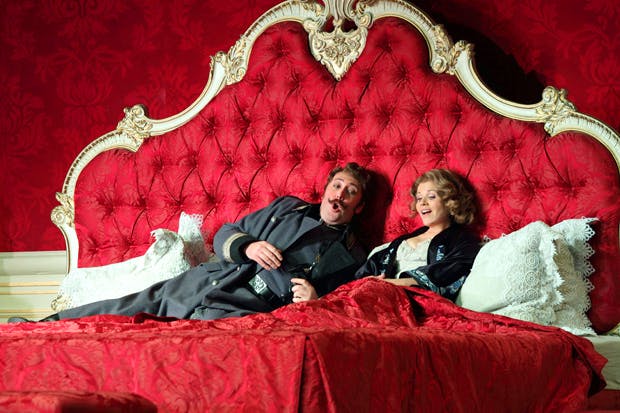
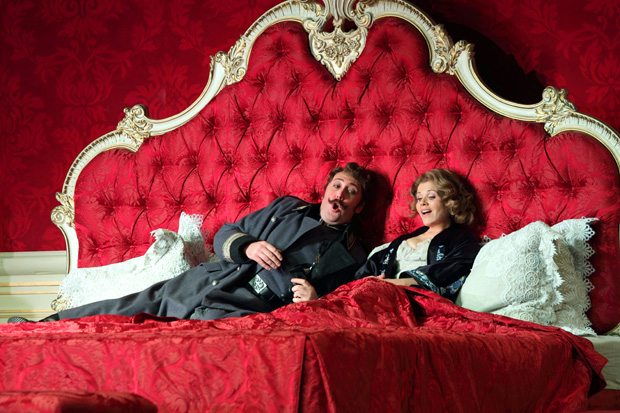
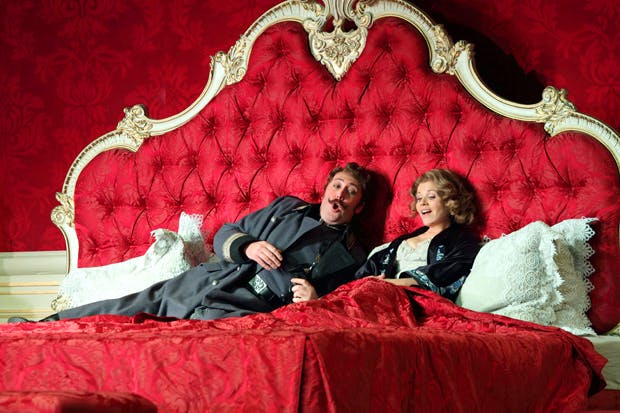

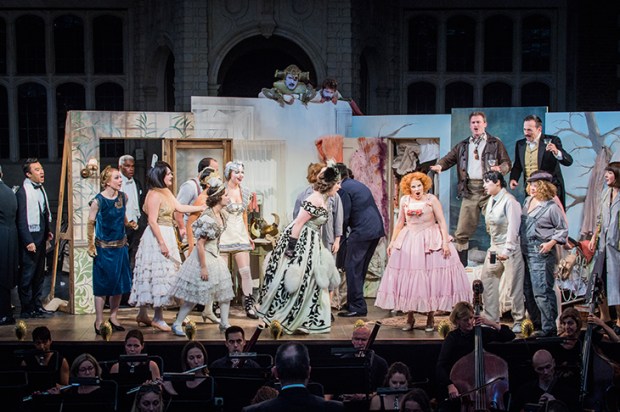
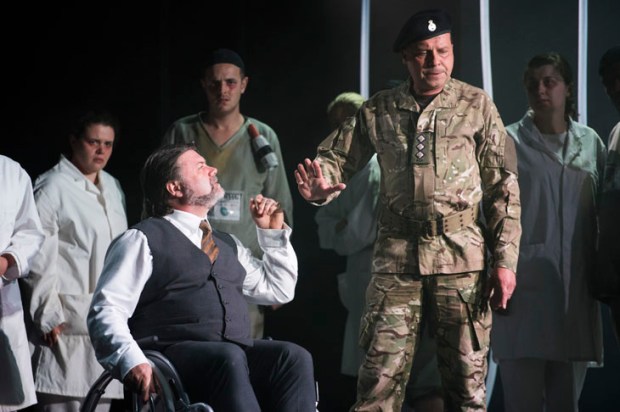
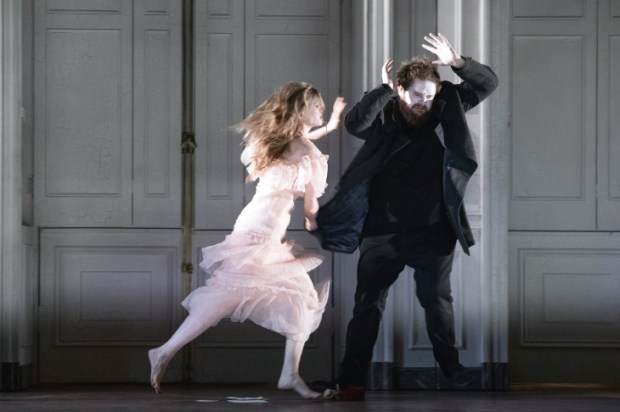






Comments
Don't miss out
Join the conversation with other Spectator Australia readers. Subscribe to leave a comment.
SUBSCRIBEAlready a subscriber? Log in